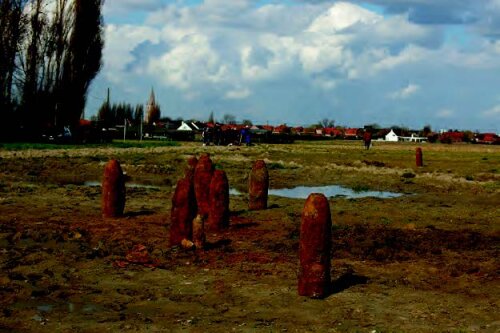The encounter of hobbyist and professional archaeologist
Since almost immediately after the fighting ended, the First World War sites of conflict in Western Flanders, Belgium, have attracted attention from visitors and collectors. Heritage management questions came to the fore especially in the run-up to First World War's centenary years (2014–2018), and professional archaeologists representing the authorities in Flanders had already begun to take a greater interest in the war’s archaeological remains.

The activities of hobbyist amateurs, particularly metal detectorists, came under greater scrutiny.
In this article, we explore the perspectives of local hobbyist enthusiasts and heritage professionals in the context of changing attitudes towards and values associated with the material heritage of the First World War in Western Flanders. We reflect upon the tensions that emerge when different interest groups clash, the disagreements between professional and amateur interests, and also upon the particular context of conflict heritage when there are numerous interests and stakeholders involved.
Flanders' First World War heritage
The development of archaeological interest
Professional archaeological interest did not focus on First World War heritage on the Western Front until relatively lately, and much later than the amateur interest that had already developed.
The first professional archaeologists to take an interest in this conflict heritage were not local Belgian or French archaeologists but from the UK, some with an explicit focus on the British experience in the war.
In Flanders, Belgian archaeologists have relatively recently taken interest in First World War archaeology. Commentators identify archaeological investigations in 2002, associated with the planned extension of the A19 road, as the first significant work by Flemish archaeologists on WWI heritage.
From hobbyist to professional archeology: the decline of the 'Diggers'
The Diggers’ decline as a central actor in WWI archaeology in Western Flanders centres around two episodes receiving attention from national and international media, between 1998 and 2009.
The first instance was the controversy surrounding a documentary that British television channel ITV aired in November 2000, titled ‘Battlefield Scavengers’. The documentary alleged that the Diggers were excavating human remains disrespectfully and without supervision, and that they were removing regimental insignia and dog tags. These allegations were serious enough for the British government to request a formal explanation. In response, Belgian authorities, including the Foreign and Interior Ministries and the Flanders Heritage Agency repudiated the claims as false.
A new dispute arose in February 2006, when the Diggers were accused of removing large amounts of ordnance as well as human remains in advance of construction, under approval from the mayor but without permission from Flanders Heritage Agency. On 10 November 2008, both were convicted with a suspended penalty. This marked the end of the Diggers’ fieldwork activities, and the completion of the slow shift towards a fully professionalised WWI archaeology.
From then on, the heritage agency’s authority was fully established: the implications of the court case being that even First World War ammunition is to be considered archaeological heritage, and that every excavation requires a permit from the heritage agency. Since permits are, by law, only handed out to professional archaeologists, and mostly in direct relation to development work, this effectively made WWI archaeological fieldwork the near- exclusive remit of commercial units.